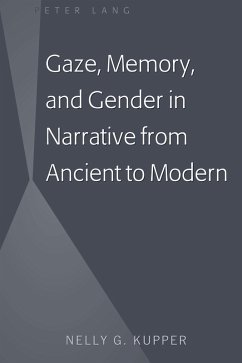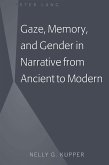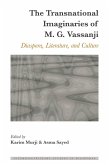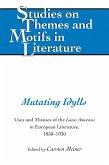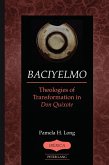This book examines the concept of the gaze in the context of narrative fiction. It argues that the gaze in fiction is a tractable factor, identifying the function of characters by way of the gender. The gaze variance and its connection to memory is not new to literary scholarship, but what has been overlooked to date is the fact that the divide exists along the line of gender. The dyad gaze-memory, provided by literary scholarship thus far is erroneous; what emerges instead is a triadic paradigm gaze-memory-gender. The gender divide is reflected in neuroscience, which shows memory processing in man and woman as respectively losing (forgetting) or retaining (remembering) vividness of detail. The discussion focuses on two narratives, one ancient (the Orphic cycle) the other modern (the novel Le Grand Meaulnes) to show that despite the presence of new narrative devices and conventions, the rules of the paradigm are preserved.
Dieser Download kann aus rechtlichen Gründen nur mit Rechnungsadresse in A, D ausgeliefert werden.
"Using the perspective of neuroscience and analyses of archetypal patterns, Gaze, Memory, and Gender in Narrative from Ancient to Modern proposes a fresh and convincing reinterpretation of Alain-Fournier's canonic novel Le Grand Meaulnes. Nelly G. Kupper's analysis sheds light on the oppositional dynamic between Meaulnes as archetype of the masculine hero, who must not look back, and Seurel, the narrator who embodies Christian values. The book's stimulating inquiry demonstrates the centrality of the adventure novel for the renewal of French literature in the early twentieth century."-Marie-Eve Thérenty, Professor of French Literature; Director of the Research Center on Literature and the Arts of the 19th, 20th, and 21st centuries (RIRRA21), University of Paul-Valéry, Montpellier 3, France

